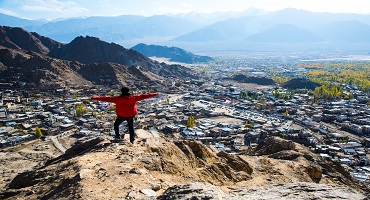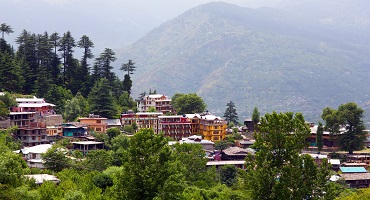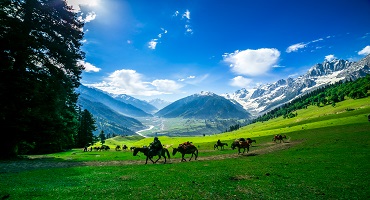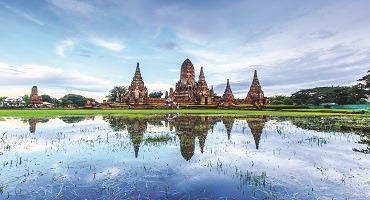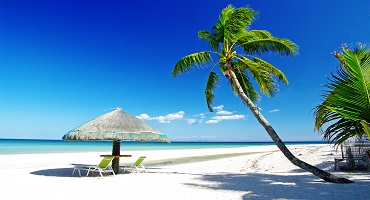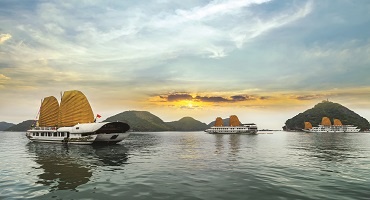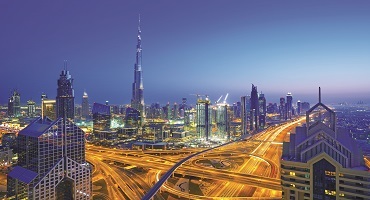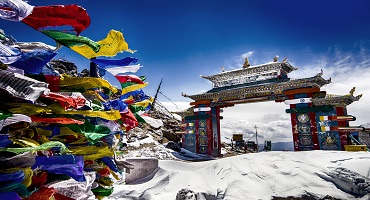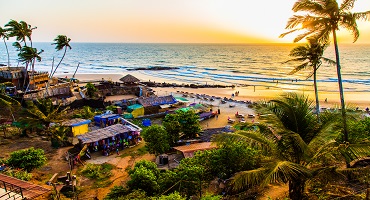Mizoram: Heaven in the Hills
In a land, not so far away, lies a tiny jewel of a state, surrounded by the protective embrace of vivid green hills. This is the land of the Mizo tribe, and so it goes by the name of Mizo (the name of the tribe) and Ram (which translates to land). If you’ve been yearning to discover nature in all her untouched and unspoiled glory, Mizoram is the place for you. Wander down the winding trails on the hills, soak in the serenity of the stunning lakes, visit the sites that tell the stories of the Mizo tribe. This is a land that is buffeted by thick clouds, coated with thick green forests and studded with the houses of inhabitants who love and worship their homeland. Mizoram is a state like no other.
| Mizoram: A Quick View of the state |
| Capital |
Aizawl |
| Official Language |
Mizo |
| Dial Code |
Aizawl (0389) |
| Population |
1.584 million (as of 2018) |
| Currency |
Indian Rupee (INR) |
| Time Zone |
UTC+05:30 (IST) |
| Area |
21,081 square kilometers |
Highlights
Aizawl
Aizawl is a wonder to behold. The capital city of Mizoram is perched at an altitude of 3500 feet above sea level. Hundreds of homes and buildings that make the city what it is, spill all over the slopes of the hill, staking their claim to the land. The town is blessed with peace and serenity and abundant natural beauty. In the east is the patient flow of the river Tlawng, and in the north jagged hills of Durtlang spear into the sky. Aizawl is a treasure chest of experiences – you can shop at Bara Bazaar, visit the Tourism Centre at Bungkawn, take in the star dusted skies from the crags of Durtlang, visit the Lammaul Ground and watch talented young footballers play. The best way to unfold the city open is on your bike or on foot.
Nature and Wildlife
Over 91 percent of Mizoram is covered by thick green forests. Within the leafy embrace of these woods, lie multiple national parks like Khwanglung Wildlife Sanctuary, Lengteng Wildlife Sanctuary, Phwangpui Blue Mountain National Park and many others. With so much natural beauty at its disposal, the state gives generous room for a variety of flora, fauna and wildlife to flourish. Mizoram is home to clouded leopards, the Asiatic black bear, 8 different species of primates, the Sambar deer, the barking deer to name a few. Wildlife enthusiasts and nature lovers won’t know where to look. Other than these national parks and forests, Mizoram boasts of jewel-like lakes like Tamdil and the stunning opal shaped Palak lake, which is framed by virginal green forests. The state is also home to the Vantawang falls which thunders down the lush slopes of the surrounding hills.
Places of Worship
Mizoram is home to one of the largest Christian populations in the country. Sprinkled in the communities are smaller groups of Hindus, Buddhists and Muslims. Churches can be found in every nook and cranny – whether it is the solemn, soft grey Solomon Church, which can accommodate close to 2,000 people, or the creamy Baptist Church of Mizoram which counts its followers in the lakhs.
Towns and Cities
Mizoram may sparkle like a green emerald but like any gem, it has many facets. You’ll discover that there’s more to Mizoram than the beautiful town of Aizawl. Visit the town of Thenzawl to explore Mizoram’s handloom industry. Soak in the lush beauty that you’ll see on your train ride to Bairabi City. Let your gaze spread over the vast fields of rice at the town of Champhai. At Hmuifang Tlang, indulge your adventurous side with activities like trekking, paragliding, biking, hiking and more.
Cuisine
Mizoram is a culinary delight. Rice is the staple food, while chicken, pork, beef and fish are the preferred proteins of the state. Food is served on banana leaves and cooked primarily in mustard oil. Boiled vegetables like spinach, eggplant, beans accompany most dishes as a side. Dig into dishes like Koat Pitha (crispy fried banana fritters), Misa Mach Poora (grilled shrimp drizzled with pepper and a tangy dash of lime) Chhum Han (gently steamed vegetables in broth, paired with rice) and Bai (steamed vegetables, pork, bamboo shoot simmered in a rich pork and mustard broth).
Interesting Facts about Mizoram
- Mizoram ranks second in the country in terms of literacy – right after Kerala.
- Crossing through Aizawl is the Tropic of Cancer.
- According to legend, the Pukzing Cave in Mizoram was carved by a man named Mualzavata using a hairpin.
- The largest family in the world resides in Aizawl. The head of the family, Pu Ziona has 38 wives, 89 children and even more grandchildren!
- Mizoram is home to as many as 21 major hill ranges and peaks.
Location: Locked in Place
The small but stunning state of Mizoram is firmly locked in the embrace of three of her sister northeast states – Tripura (northwest), Assam (north) and Manipur (northeast). In fact, of all northeast states, it happens to be one of the most landlocked states in the region. In the east and south, Mizoram shares her borders with Myanmar. In the west, she is bonded to Bangladesh.
Click here to view Mizoram on Google Map
Timings: Best time to Visit
Mizoram lies in the grip of three big seasons – summer, monsoon and winter. However, none of these seasons expose the land to extreme temperature. Summer starts in March before handing the state over to the monsoon showers in May. Winter, however, is the best time to explore Mizoram – cool weather and stunning vistas create a combination so potent; it would sway any traveller. Temperatures range between 11 and 21 degrees Celsius.
How to get to Mizoram: Planes, Trains and Cars
By Road: You can drive to Mizoram by taking the National Highway 54 (NH54) from Silchar in Assam. Mizoram’s State transport buses ply regularly to Guwahati, Silchar and Shillong.
By Rail: Mizoram does not have a train station other than a rail head in Bairabi in the Kolasib District. However, most tourists travel to stations in Silchar (Assam) and Agartala (Tripura).
By Air: Aizawl does have a domestic airport – Lengpui Airport - which is well connected to cities like Kolkata, Guwahati and Imphal by daily and weekly flights.
History: Tribes and Tribulations
Like the land that stays shrouded by dense white clouds, Mizoram’s history too is hidden in the hills. What we do know is that the name for, perhaps the first people to live in the state, was Kuki. It is also believed that these residents (members of different tribes) migrated to Mizoram from neighbouring states in 1500 CE. Before colonial rule, the Mizos lived in several independent and autonomous villages, each of which had their own tribal chief. These chiefs enjoyed absolute authority but remained under the nominal rule of the Rajas of Manipur, Burma and Tripura.
In 1895, Mizoram officially became a part of British India. When India gained Independence, Mizoram existed as a part of Assam. By 1961, Mizos were frustrated with the famines and unrest in the region and were seeking their own independence from India. In 1972, the government converted the Mizo hills area into a Union Territory, and following the Mizoram Peace Accord, Mizoram was given full-fledged statehood in 1987.
Mizoram’s history may be filled with tales of fierce self-sufficiency and independence, in contrast with the serene state that it is today. Here are some of the highlights of modern Mizoram.









